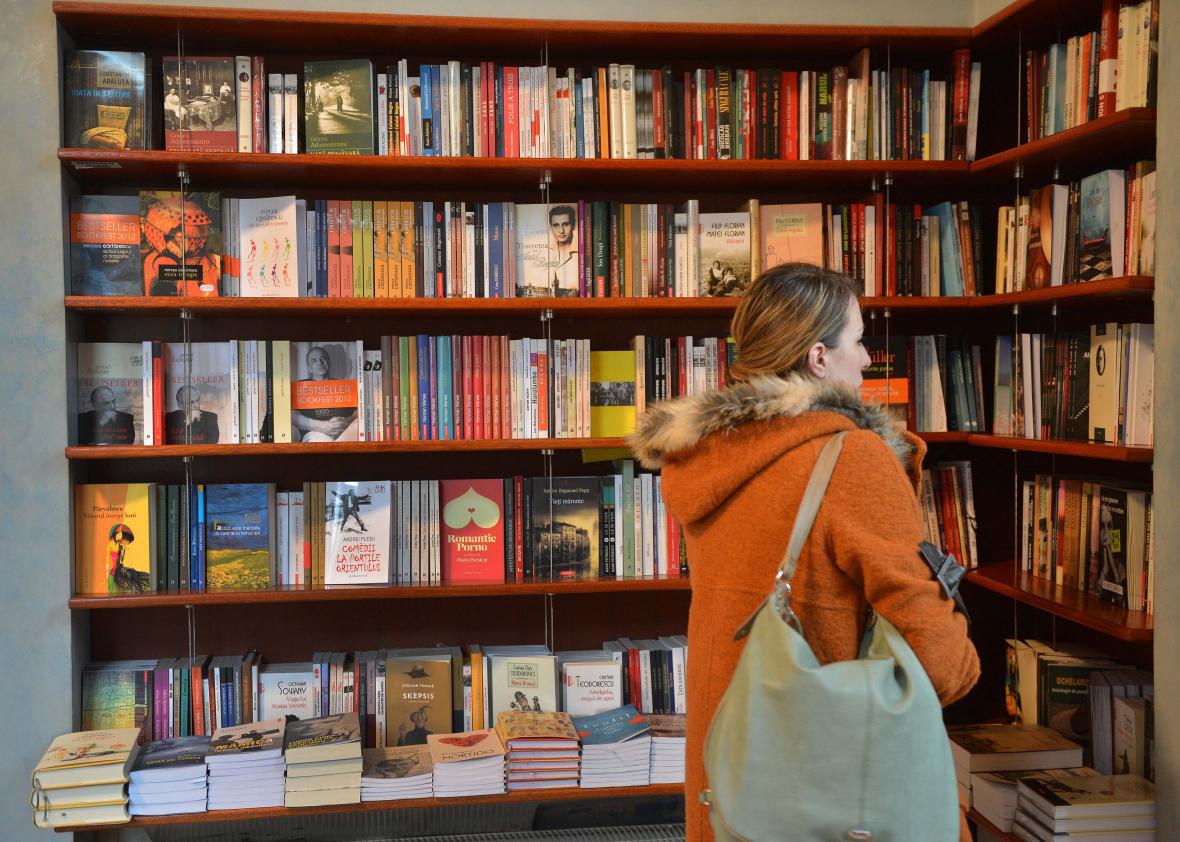Labor day has come and gone: Now is the season of pumpkin spice everything and “fall books to look forward to” roundups, which have been compiled in recent days by outlets from BuzzFeed to Vulture to the Huffington Post. The same architectural silhouettes define the horizons of these previews: Jonathan Franzen, Collum McCann, Claire Vaye Watkins, Margaret Atwood, Patrick DeWitt, Mary Gaitskill, Gregory Maguire, Sloane Crosley, Anthony Marra, Salman Rushdie, Paul Kingsnorth, Rick Moody.* Their shapes make for an attractive skyline. But the critical lockstep among books journalists is still notable. Are these books really the only ones to look forward to, out of the many slated for publication this fall?
The mechanics of the books industry make it difficult to escape the sense of literary groupthink. Publishing houses churn through hundreds of manuscripts. They throw their marketing resources behind the best ones—the ones most likely to sell, sure, but salability proves tricky to separate from craftsmanship. Journalists hear about these marquis titles and cover them. (And the bigger the publishing house, the more they hear and cover.) Whether or not you’re copacetic with it all likely depends on how much you trust the discrimination of the folks at Europa or Scribner or FSG. (For my part, I concede that the system’s imperfect, but I’m not sure what a good alternative would look like.) Still: The canon of 2015 “most anticipated lists” is missing many promising titles.
So the handful of suggestions below doesn’t represent so much an alternative to the choice fare you’re already being recommended as a supplement. Yes, you should heed the Internet and grab a copy of Percival Everett’s Half an Inch of Water; it’s amazing. But you might also want to check out some of these unsung titles. The only criteria I’ve used in selecting them are that 1) the book does not appear in any fall preview list known to me and 2) the book looks, well, good.
It Had Been Planned and There Were Guides by Jessica Lee Richardson (September)
Richardson’s debut collection of short stories, which won the FC2 Ronald Sukenick Innovative Fiction Prize, seems pretty trippy. It “teems with double magic—families of spiders, monsters in triplicate, and panels of bleacher-sitting grandfathers who live in a diaphragm,” according to the jacket copy. Stories unfold in Instant Message conversations with computer programs, or through entries from an old woman’s scrapbook, or on placards at an art museum. I opened to a random page and encountered this sentence: “He punctuated his comment with a sip from his cherry pie vodka, like he simply didn’t give a single fuck anymore.”
Memory Theater by Simon Critchley (September)
David Mitchell called this book a “brilliant one-of-a-kind mind game occupying a strange frontier between philosophy, memoir, and fiction.” In it, philosophy professor Simon Critchley inherits a box of astrological documents predicting his future (and death) in great detail. He becomes obsessed with his fortune and begins to hallucinate. The story tacks from abstract meditations on memory and thought to surreal, hilarious anecdotes involving Critchley’s bizarre life. Sample confession: “I couldn’t think of anything apart from death and the vague prospect of breakfast cereal.”
Wait for Me by Judith Viorst (October)
Subtitled “the irritations and consolations of a long marriage,” this lovely collage of cartoons and poems from the author of Alexander and the Terrible, Horrible, No Good, Very Bad Day follows Viorst through more than 50 years of matrimonial commitment to her husband. The tone is funny and clear-eyed and affecting. Sample epitaph: “It destroys one’s nerves to be amiable every day to the same human being” –Benjamin Disraeli.
The Emperor of Water Clocks by Yosuf Komunyakaa (October)
How is this book, the latest verse collection from a Pulitzer Prize-winning poetic genius and cultural treasure, not already blooping across everyone’s reading radar? Sample line: “I see the tip/ of a purple mountain, but sweetheart,/ if it weren’t for your late April kisses/ I would have turned around days ago.”
The Pickle Index by Eli Horowitz (November)
A “Roald Dahl-via-Kafka-esque fable for the digital age,” this romping experiment from the managing editor of McSweeney’s concerns a circus troupe in an alternate universe seeking to break their leader out of prison. Sample dialogue:
“All right, all right. But if this breadbread explodes, my blood will be on your hands.”
“It’ll probably be all over us, actually,” Marina said.
Calloustown by George Singleton (November)
The “unchallenged king of the comic Southern short story” has produced 15 interlocking sketches set in the brutal, fictional burb of Calloustown, South Carolina. If they’re anything like Singleton’s previous work, you can expect plenty of laughing through your tears. Sample opener: “After Louise took off, and seeing as I didn’t fully believe my doctor’s prediction in regards to what would happen inside my liver should I ever attempt to dry out the states of Kentucky and Tennessee again, I found myself wanting to enter Calloustown proper and find a bar.”
Changing the Subject: Art and Attention in the Internet Age by Sven Bikerts (November)
A series of essays from the critic behind The Gutenberg Elegies probes the relationship between art and technology; immersion, distraction, and the self. Bikerts is neither a crusty Declinist nor an optimist. What comes through is his intensely thoughtful engagement with and interrogation of the everyday activities we take for granted: reading fiction, checking our phones. Sample author tweet: “Aging is finally an editorial process.”
Correction, Sept. 10, 2015: This post originally misidentified the writer Sloane Crosley as Sloane Crosby.
